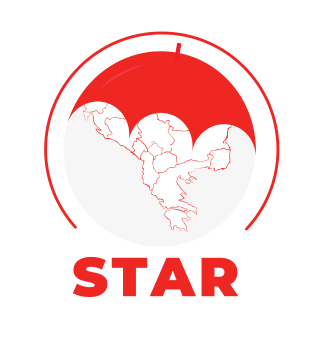In the Republic of North Macedonia, voluntary sex work is banned via legal provisions which primarily affect sex workers. The main reason for the arrangement of such criminalizing legal framework is above all the moral concern regarding the behavior which is socially unacceptable and contrary to traditional values. Numerous testimonies published in the media, in the reports issued by human rights advocates, as well as organizations led by sex workers’ community dealing with legal and social services provision, have detected that sex workers are frequently faced with violence and human rights violations by both state institutions and third parties, which directly affects not only their safety while working, but also their day-to-day life.
Considering these circumstances, for more than 15 years, the sex workers’ community, civil associations and their advocates, have been striving to come up adequate legal solutions with which sex work is targeted, i.e. adoption of a legal framework by which sex workers’ rights will be consistently respected, safe working conditions will be provided so that their health will be protected, and in cases of violations of their rights they will be granted unhindered access to justice. In other words, the sex workers’ community advocates for decriminalization of voluntary sex work.
Sex workers are perhaps one of the most marginalized users when it comes to exercising and having access to social welfare rights and services, which is predominantly due to the high degree of judgement, rejection, as well as the stereotyping of their profession. This community is forced to find its own ways and survival strategies, which more often than not lead to unconventional survival models with a great number of risks.
This analysis will attempt to portray the state of affairs in the punitive and social legal framework in the Republic of North Macedonia and offer adequate recommendations by which unfavorable situations can be overcome, in the direction of respecting and protecting sex workers’ rights in the process of exercising their rights, primarily in the field of social protection.
At the same time, we will attempt to draw the attention to certain experiences that the community has had in terms of the barriers they have been facing when it comes to exercising their social welfare rights and their access to services, with the goal of coming up with a response which would generate appropriate recommendations to overcome the detected hindrances.
Amongst other things, the analysis will have offered its own viewpoints regarding the role of the media in the process of de-stigmatization of this particular profession and raising public awareness in terms of making a clear distinction between voluntary sex work and human trafficking.
This research was developed by the Civil Association STAR-STAR Skopje, as the only organization led by the community of sex workers and it was conducted among sex workers by members of the community, as a unique model which can provide in a structural way, a reliable overview of data, information and experiences gathered directly by the community, as the most affected party.
The issuance of this publication is within the frames of the strategic program activities of the Association in accordance with the Strategic Plan 2022-2025, supported by the Red Umbrella Fund.
The research report is available in Macedonian and English and can be read/downloaded in its entirety at the following link:

